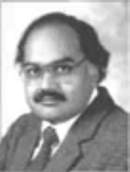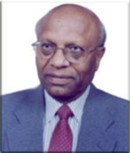
JAINA Convention 2007
Federation of Jain Associations In North America
Peace And Harmony Through Dialogue
Sulekh C. Jain, PhD Jainism as part of South Asian Studies in North American |
In North American universities, now there is considerable interest in South Asian Studies, often focusing on Hinduism and Buddhism. Unfortunately Jainism, an ancient and unique tradition has been largely under-represented. Here we present an innovative approach that is attempting to change that.
There is now increasing interest in the study of the culture and philosophy of South Asia, partly as a result of increasing interest in pluralism and global issues. There has been significant immigration to North America from India. Many faculty members at universities are now Indian, and so are many distinguished professionals in medicine, finance etc. There is now a lot of academic interest in Hinduism and Buddhism and even Sikhism at North American campuses in terms of course offerings and scholarly research. Unfortunately Jainism has only a miniscule presence. Among thousands of South Asian researchers, there are only 17 experts in Jainism. Since there are very few academic programs in Jainism, it is the least known and the most misunderstood religions in USA and Canada.
A bold and ambitious program, about three years old, is attempting to change that. The International Summer School for Jain Studies (ISSJS) has initiated a program that is training current and futures teachers and researchers. Its target is mainly North America, although the program has attracted a few scholars from Europe and Far East also. ISSJS goes beyond training; it plans to continue the past participants motivated to initiate new Jainism related projects.
The Need for a New Approach:
The modern world is increasingly becoming a networked and competitive society. That has created new challenges for Jainism. In the past Jainism was concentrated in a few regions of India where traditional Jain centers were located. The Jain scholarship as well as life-style was guided by spiritual leaders like the Acharyas, Bhattaraks, Yatis as well as lay pandits. With their leadership, Jainism has survived and flourished through many centuries of adversities. Today, even Jains in India are widely dispersed. They are increasingly being more exposed to other faiths rather than Jainism. The traditional methods of passing the Jain tradition to the future generations are becoming less and less effective.
The Jains overseas face a serious challenge in preserving the Jain heritage. They are a small minority within a small Indian community. It is hard for a young Jain to explain to others what Jainism is about and what is special about it. The preservation of the Jain identity has become a significant challenge among the Diaspora Jains. We need modern and innovative solutions to the difficulties faces by the overseas Jains.
Today religions must strive to disseminate their message widely. Tibetan Buddhism is now familiar to people worldwide through international activities of His Holiness the Dalai Lama. Hinduism is now known around the world, due to ISCON, Maharshi Mahesh Yogi etc. Gita is now widely quoted by non-Hindus. Within the past 50 years, the missionaries have made Christianity the most popular faith in Korea, leaving Buddhism behind.
Jain teachings have what the world today seeks - principles like Ahimsa, Compassion, Vegetarianism, and Tolerance. Unfortunately these have been hijacked by others. Jains must use modern methods to reach people beyond the confines of the Jain community. We need to make it possible for the new generation of Jains to acknowledge their identity proudly. They should be able to discuss Jainism with non-Jains and explain why this ancient tradition is relevant today.
In the 25 centuries after Lord Mahavira, we have turned to the Scriptures (Jina-Vani) for guidance, and to the monks and nuns for leadership. The Jain Temples have served not only as a center for worship, but also as symbols and anchors for the dharma. Devoted shravakas, through their support for Jain institutions and practices have supported survival of Jainism. There has been extensive temple building in recent years, however there is a feeling that the Temples alone will not preserve Jainism. It is essential to preserve Jain Learning and prepare competent scholars who will teach Jainism for the future generations of Jains and non-Jains.
The ISSJS program:
It was initiated in 2005 and involves hosting a group of carefully selected scholars, mainly professors and graduate students in North America, for two months in summer in India. They go through an intensive two-month academic program on Jainism including philosophy, social aspects, rituals and pilgrimage. They are provided with opportunities for interaction with scholars, monks, nuns and practitioners of Jainism. The program is designed to be applicable to academic studies in North America and other overseas universities. After returning, ISSJS encourages and supports the scholars to carry out research and curriculum development in Jain Studies.

2005 ISSJS Award Ceremony
The ISSJS approach for promoting Jain studies is novel and is designed to be cost effective. Another approach of establishing a Jain Chair at a major university was considered at the beginning. However the cost of setting up an endowed Chair is prohibitive for the small Jain community. Its benefits tend to be localized and often it can take a long time to establish. In addition, finding a suitable distinguished scholar can be difficult. The ISSJS approach aims to train scholars from multiple institutions who show promise of eventually emerging as teachers and researchers in Jain Studies. ISSJS also encourages graduate students to choose topics in Jain Studies as possible fields of specialization. Participation in ISSJS may permit them to earn academic credit. The Summer School immersion approach is fast track and cost effective.
ISSJS aims to bring Jain Studies to major academic institutions by seeding development of courses for all those interested, Jain as well non-Jain students. Research and publications by the scholars will make Jainism accessible to the academic community at large. The Jain institutions in North America and India will also benefit because the ISSJS scholars will be available to give lectures and seminars at these institutions. Their research will appear at international conferences. These scholars will collaborate with Jain scholars in India, opening doors of international involvement for them. This will also promote modernization of Jain Studies in India.
India is now open to internationalization, and Jainism in India also needs to become global. ISSJS will promote that by creating opportunities for scholars in India to interact with international scholars. Jain scholars will be invited to visit overseas institutions for talks, collaboration, and even faculty positions. This will raise the perceived quality of Jain institutions in India. Jain youth will no longer see Jainism as an old-fashioned, impractical and isolated system, but rather a modern and globally applicable philosophy.
ISSJS is a non-government non-profit project led by volunteers. It is funded by a few philanthropists in USA, U.K, Canada and India.
Table 1: ISSJS Progress
| School | Duration | Scholars | Regions represented |
| First | June-July 2005 | 07 | USA, Canada |
| Second | June-July 2006 | 14 | USA, Canada, Singapore, Thailand |
| Third | June-July 2007 | 34 | USA, Canada, Russia, Thailand |
The above table shows how the ISSJS has grown since its inception in 2005. The scholars for 2007 have been competitively selected and are getting ready to arrive in India. The 2007 participants include a complete team from University of Ottawa. The faculty and staff in India have been undergoing training to get ready.
ISSJS uses modern teaching methods. The lectures are prepared in advance by the teachers and the lecture notes are provided to the scholars on arrival. The instruction is interactive, the students are encourages to ask perceptive questions. The instructional technology used includes PowerPoint presentations using computers and projectors. Evaluations and feedback from both the teachers and students are collected and assessed daily, weekly, monthly as well as at the end of the course. The participants undertake a one weeklong special project under the supervision of a Jain scholar in India. Visit to Jain temples and homes and meetings with sadhus and sadhvis are arranged to give the students personal glimpses into the Jain society.
Even though ISSJS has only a short history, several past participants already have substantial achievements to their credit. Sarah Hadmack, who has taught Religious studies at Windward College and University of Hawaii, has done her MS Thesis on Jain asceticism. She is writing an article and a chapter on Jain asceticism. Marcel Parent, a PhD scholar at Concordia University Montreal has started offering classes in Jainism. Andrea Jain at Rice University, Houston is teaching a section on Jain Diaspora. She is teaching a course at Houston University on Indian Religion with emphasis on Jainism. Dr Shugan Jain has visited University of Ottawa as a guest of Prof. Anne Vallely and Eastern Connecticut State University on invitation of Prof. Hope Fitz. ISSJS is attracting scholars from other regions also, from Singapore and Thailand in 2006 and from Russia and Thailand in 2007.
The ISSJS Organization:
The ISSJS program is implemented in India by International School for Jain Studies, Delhi and has been supported by several prestigious organizations in India. These include: Bhogi Lal Leherchand Institute of Indology, Delhi; Jain Vidhya Sansthan, Shri Mahavirji (Jaipur Branch), Raj.; Jain Vishwa Bharati Institute, Ladnun, Raj.; Kundkund Gyanpeeth, Indore, MP; Tulsi Global Meditation Centre, Gurgaon, Haryana; Jain Academic Educational & Research Centre, Mumbai University; National Institute of Prakrit Studies and Research, Shravanbelgola; Naval Veerayatan, Pune, Maharashtra, Manglayatan University, Aligarh, U.P and Parshwanath Vidyapeeth Research Institute, Varanasi, U.P.
In North America the program is supervised by the Overseas Academic Council which includes some of the best-known overseas scholars on Jainism. Prof. Cromwell Crawford, U of Hawaii, has served as the Director. Others include Prof. Padmanabh S. Jaini, U of California, Berkeley; Prof. Christopher Key Chapple, Loyola Marymount U. CA; Prof. Hope Fitz, Eastern Connecticut State University; Prof. John Cort, Dennison University OH; Dr. Anne Vallely, University of Ottawa, Canada; Dr. Natubhai Shah, London, U.K; and Sarah Hadmack, University of Hawaii.
The India Academic Council includes distinguished scholars with expertise in various aspects of Jain studies. Its Director is Dr. Shugan Chand Jain, Delhi. It includes Prof. Kamal Chand Sogani, Jaipur; Prof. Sagar Mai Jain, Shajapur; Prof. Kusum Jain, Jaipur; Dr. M.R. Ghelra, Jaipur; Dr N.PJain, Indore; Prof. Anupam Jain, Indore and Prof. M.L. Jain, Delhi as the Coordinator.
The Future of Jain Studies:
A significant expansion of ISSJS activities is planned in future. It is planning to support the popular study-abroad programs to take students to India to study Jainism and Jain culture. A committee is actively working on a proposed Jain University of North America using the examples of institutions like the Hindu University of America or University of Notre Dame etc. It plans to initiate its activities by offering a distance-learning program on Jainism. It will use the web as the primary distance-learning medium to bring Jain Studies to the whole world. It aims to seek cooperation with established professors and programs. A committee has started to work on its mission and the code.
The ISSJS initiative can potentially lead to goals that appear infeasible today. It can lead to the creation of Jain Centers of Excellence or Jain Chair at universities. It may even lead to a special Institute for a systematic, broad, multi-dimensional for training scholars and perhaps even monks/nuns.
The success of ISSJS during the past three years has been due to the contribution of the volunteers and donations by the supporters. These will be critical resources for time to come to ensure success of the Jain Studies overseas.

